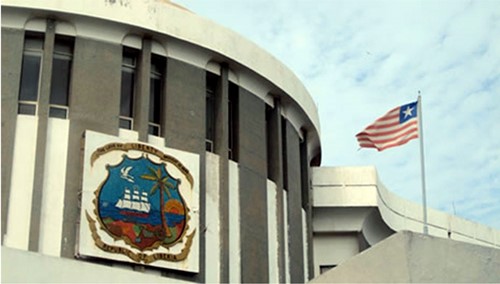In recent times, the political landscape in Liberia has taken a troubling turn, characterized by a rising tide of bribery allegations within the National Legislature. Once seen as a vital institution responsible for shaping the nation’s governance, the Legislature has become marred by corruption and self-serving actions from its members, many of whom have dubious backgrounds as former warlords or government officials. These issues not only threaten Liberia’s democratic principles but also undermine effective governance and exacerbate the socio-economic challenges facing the country. The public’s trust in their representatives is dwindling, especially with alarming reports of bribery related to the attempted ouster of Speaker J. Fonati Koffa, where lawmakers were allegedly offered $15,000 each to support a resolution for his removal.
The normalization of bribery in Liberia’s post-conflict government has set a dangerous precedent. Starting from 2007, when Liberia’s budget for the Legislature dramatically increased from $9.4 million to over $57 million in 2024, various concession agreements—valued at a staggering $16 billion—were passed amid rumors of lawmakers receiving illicit financial incentives, often referred to as “brown envelopes.” A notable instance occurred during the negotiation for the Mineral Development Agreement with ArcelorMittal, during which the corporation donated 100 Toyota pickups to legislators just prior to the ratification of the deal. The bribery allegations have persisted over the years, exemplified by the ousting of Speaker Edwin Snowe in 2007, where lawmakers admitted to receiving money to facilitate his removal.
The recent allegations against Speaker Koffa have heightened concerns regarding the ethical conduct of the National Legislature. As Koffa and President Joseph N. Boakai were attending a conference in Rome, reports emerged that members of the House had received substantial bribes linked to the Speaker’s potential removal. The Legislature’s recent allocation of public funds for lawmakers’ luxury vehicles amidst a backdrop of extreme hunger and poverty in Liberia has fuelled public outrage. According to the Global Hunger Index, Liberia ranks poorly, with over 52% of its population living in multidimensional poverty. The brazen display of corruption—exemplified by representatives like Luther Collin showcasing cash that was purportedly offered to him—indicates a systemic issue within the governance structure, exacerbating the public’s disenchantment.
Corruption within the Legislative Assembly not only impedes governance effectiveness but also deepens social inequalities, leading to civil unrest and cries for political transformation. The gravity of these bribery scandals calls for urgent action from the Ministry of Justice and the Liberia Anti-Corruption Commission. Civil society organizations, the media, and citizens must take a stand against the pervasive corruption that has infiltrated their government. The call for accountability and transparency grows louder, as impunity breeds further discontent among the population, risking the stability of the political environment.
Despite the alarming statistics illustrating public dissatisfaction—145th out of 180 in the 2023 Transparency International Corruption Index—there remains a dangerous complacency among the electorate regarding corrupt practices. The current political climate has been shaped by a culture that often holds party loyalty above ethical governance, cultivating a sense of helplessness among voters. As long as party affiliations dictate electoral choices, continued malfeasance within government ranks is inevitable. This situation poses a significant risk to the legislative process as representatives continue prioritizing private financial gain over the needs of their constituents.
To restore hope and faith in Liberia’s governance, it is essential for the conflict-ridden nation to foster an environment where accountability prevails. Calls for significant legal repercussions for those implicated in the bribery scandals must garner popular support, prompting media coverage and civil society involvement to mobilize collective action. By emphasizing the importance of citizen participation in the political process, Liberia can work towards eradicating corrupt practices within its legislative system. The emergence of a transparency-driven culture, supported by active community engagement, may ultimately pave the way for a government that genuinely serves the interests of its citizens and fosters an environment conducive to socio-economic development. Only through unyielding vigilance and cooperation can Liberia break free from the shackles of corruption that threaten its stability and future prospects.














